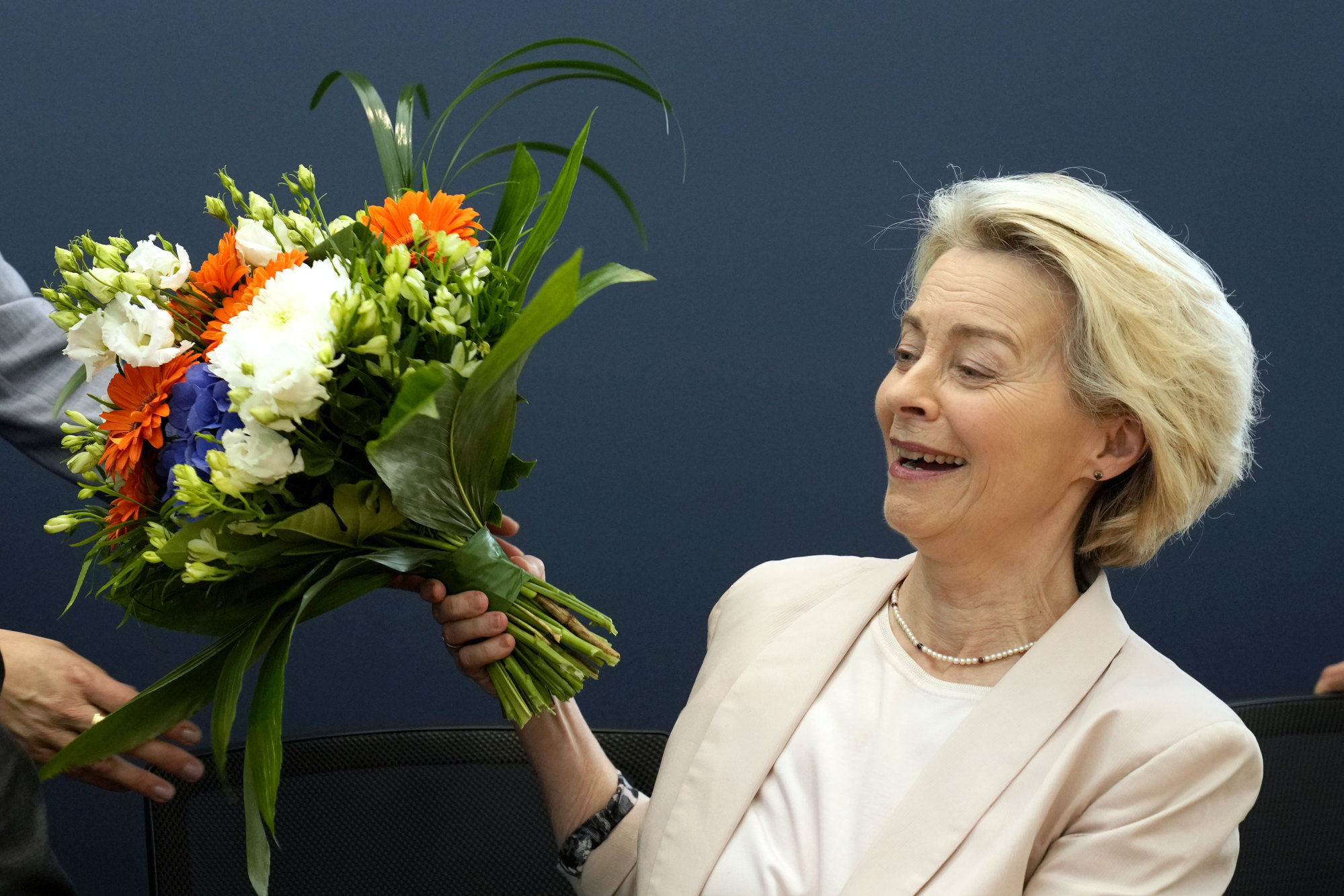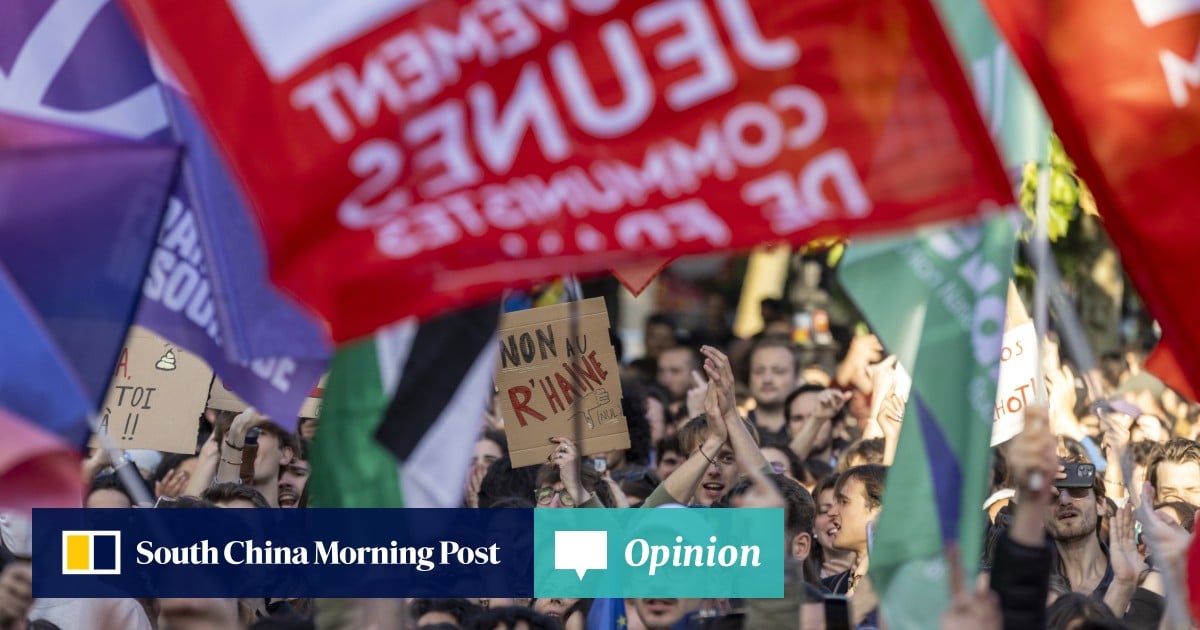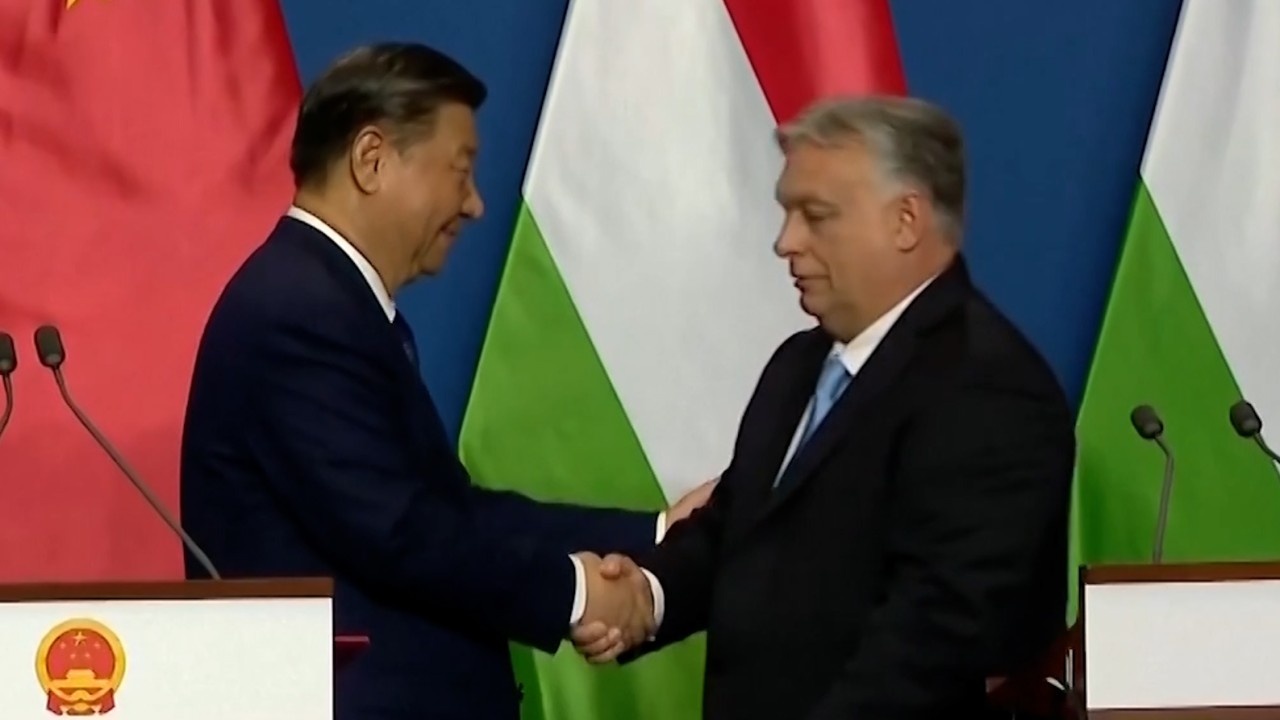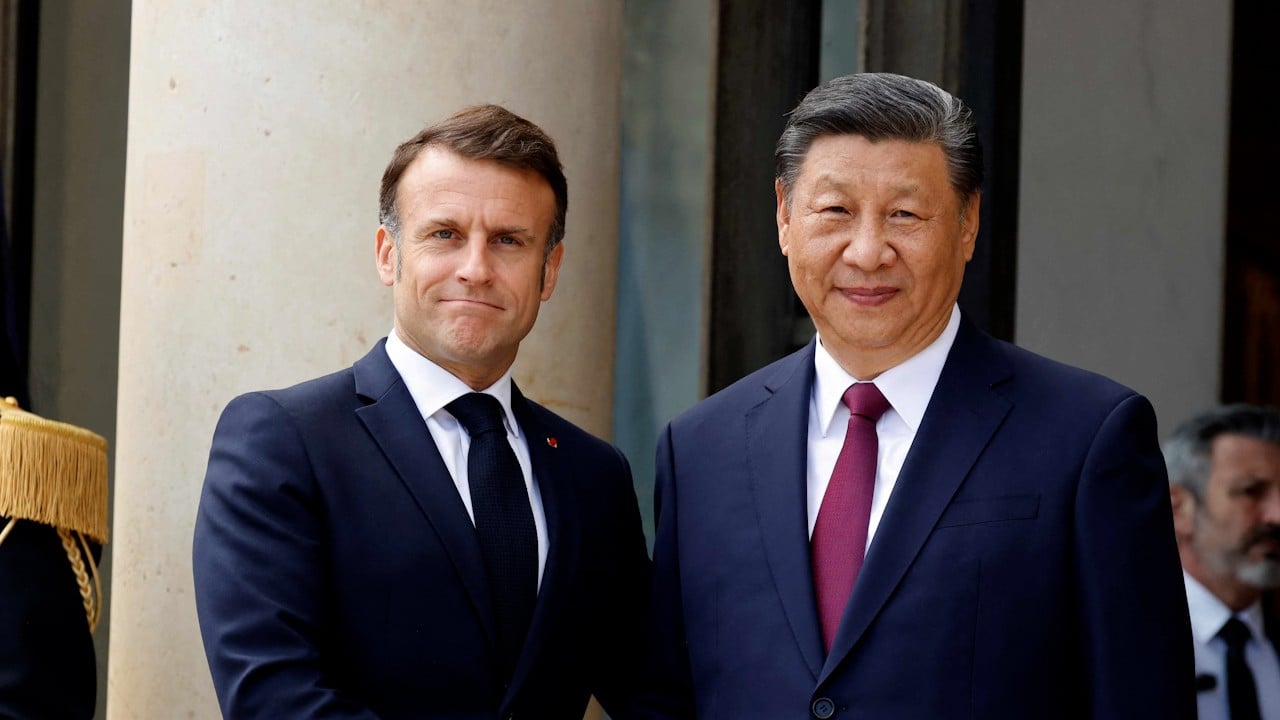Renew Europe, a pro-European liberal party, and the Greens appear to have suffered the heaviest losses. Renew had lost 23 seats according to the provisional results, falling from 102 to 79, with the Greens losing 18 seats to hold 53.
The centre-left will still prevail if its coalition holds firm, as it has since direct elections for the European Parliament began in 1979. However, the right and far-right now control 131 seats between the ECR and the Identity and Democracy parties.
They are likely to be joined by 15 lawmakers from Alternative for Germany, 11 from Hungarian Prime Minister Viktor Orban’s Fidesz party, six from Poland’s Confederation party and three from Bulgaria’s pro-Kremlin Revival party. This bloc would be the second-largest force in the parliament if they stick together despite their many fissures and rivalries.
All 720 seats in the legislature were up for election. No single group earned the 361 seats needed for a majority, requiring coalitions that shift allegiances depending on the issues. Right-wing parties seized on anxiety throughout Europe over inflation, discontent among farmers and the wars in Ukraine and Gaza. The continent’s economic outlook, poverty, public health, climate change and the future of Europe were also likely on voters’ minds.
In France, provisional results indicated that the far-right National Rally had won 30 of France’s 81 seats in the European legislature, raising its share of the vote by 10 per cent from the 2019 election. Meanwhile, French President Emmanuel Macron’s centrist Renew coalition managed just 13 seats and 15 per cent of the vote.
Socialists, Greens, liberals and conservatives lost seats to far-right parties led by Orban, Italian Prime Minister Giorgia Meloni and Geert Wilders in the Netherlands. Alternative for Germany has taken second place in the country’s election behind the Christian Democrats, which won 29 seats, according to the provisional results.
Right and far-right parties are likely to insist these results give them the momentum to change their national governments later this year. In response to his heavy defeat, Macron dissolved the French legislature and gambled his party’s future on a snap election. German Chancellor Olaf Scholz and his Social Democrats have finished in third place, their worst result ever. Belgian Prime Minister Alexander de Croo resigned after his liberal Open VLD party performed poorly in federal and regional elections.

Preliminary figures suggest voter turnout across the continent was 50.8 per cent, almost identical to 50.7 per cent turnout in 2019. European Commission President Ursula von der Leyen faces a difficult task in securing a second five-year term as the coalition supporting her has eroded while her opposition has gained strength. Her victory in 2019 was a narrow one, clearing the minimum threshold needed by just nine votes, and other pro-Europe mainstream officials who dominate EU institutions will also face challenges.
With right-leaning parties in the ascendant, expect Brussels to defer more to member states. It is also likely to be less aggressive in asserting pan-European approaches in domestic matters and foreign affairs as Euroscepticism has a stronger voice.
Like the United States, Europe is aware of the difficulties arising from being heavily dependent on China. Brussels has sought to protect technologies it fears would enable China to leapfrog into dominance. The European Union was China’s second-largest trading partner last year, accounting for 13.2 per cent of China’s total trade. While Europe’s right-leaning parties see China as an important trade partner, they also consider it a fierce competitor and tenacious rival.
The European right tends to be more sceptical of economic integration and of deeper cooperation leading to political and economic liberalisation within China. There is a greater appetite for “de-risking” Europe’s relationship with China, a notion von der Leyen helped popularise but has struggled to create consensus on as some EU members and business leaders have expressed concern over access to China being curtailed through Beijing’s retaliation.
As a result, member states could be more willing to enter into bilateral arrangements with China to improve trade and create a buffer against economic uncertainty. At the same time, conservative governments in Europe will find it hard to balance their priorities for economic growth against their fears of China’s long-term ambitions.
Increasing fragmentation in Europe between Brussels and member states offers China more opportunities to drive a wedge between Europe and the US. Fears that former US president Donald Trump could return to the White House have led some in Europe to push for greater self-sufficiency. Europe’s rightward tilt will accelerate these trends, with both benefits and costs for China.
James David Spellman, a graduate of Oxford University, is principal of Strategic Communications LLC, a consulting firm based in Washington, DC
Denial of responsibility! Chronicles Live is an automatic aggregator of the all world’s media. In each content, the hyperlink to the primary source is specified. All trademarks belong to their rightful owners, all materials to their authors. If you are the owner of the content and do not want us to publish your materials, please contact us by email – chronicleslive.com. The content will be deleted within 24 hours.



